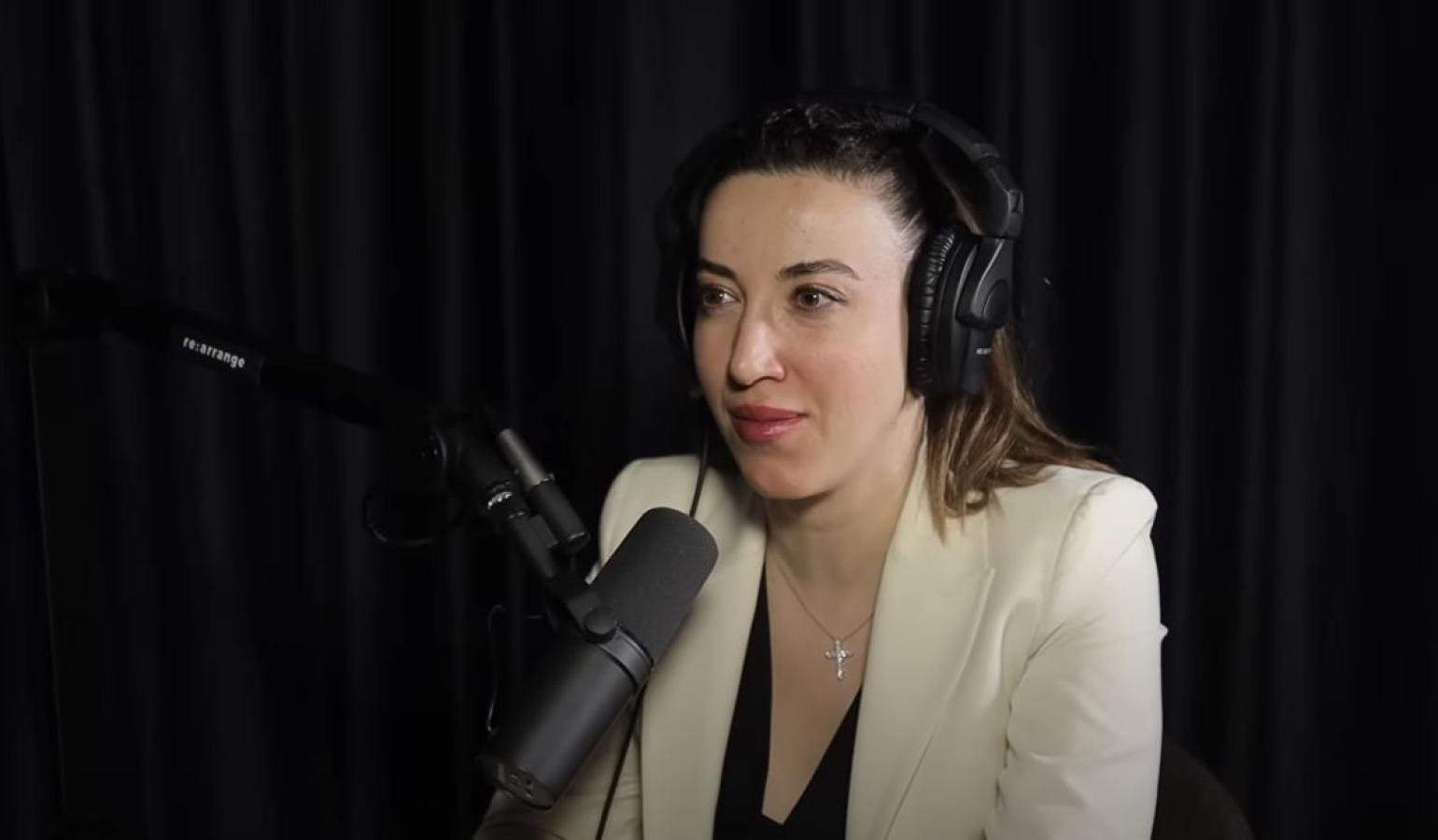
If a soldier has laid down their weapon and no longer poses a threat to the enemy, they become a protected person. – Siranush Sahakyan
The guest of the “Rearrange” podcast was Siranush Sahakyan, the head of the "Center for International and Comparative Law." During the podcast, the human rights defender spoke about Armenian prisoners held in Baku, Azerbaijan’s pressures, the withdrawal of cases from international courts, the spread of hatred, and other related topics.
"We should generally distinguish the arrest of former and current high-ranking officials of Artsakh from classic cases of captivity. Captivity arises during the active phases of military operations when citizens of the conflicting sides fall under the occupation of the opposing side. International humanitarian law provides different legal frameworks for such situations. If a soldier has laid down their weapon and does not resist, no longer posing a threat to the enemy, they become a protected person. In such cases, they should be taken captive and temporarily isolated to weaken the enemy’s military capabilities. However, international law also stipulates that once the conflict ends, these individuals must be released, and certain actions against them are deemed impermissible," said Sahakyan.
During the podcast, the discussion also touched on closed institutions. Sahakyan noted that there are different types of such facilities: "there are places where detainees are held without a final conviction, and there are places where individuals are held based on a court ruling as part of a sentence involving deprivation of liberty. While all of them have restricted freedom of movement, the conditions of their isolation from the outside world vary. This is why we distinguish between pretrial detention centers and correctional facilities. These individuals have been held in Baku for a prolonged period."
Sahakyan once again emphasized that Azerbaijan's actions are politically motivated. Azerbaijan was not satisfied with merely dismantling Artsakh’s statehood and destroying it through military operations. It also seeks to carry out punitive measures against all Armenians who contributed to the establishment of that statehood, the recognition of Artsakh, or the public exposure of Azerbaijan’s crimes in the region.
“Baku is not just convicting a specific number of Armenians—it is condemning the entire Armenian people for Artsakh’s right to self-determination. It is clear that these individuals will be sentenced to life imprisonment, which symbolically means that the right to self-determination itself is being sentenced to life imprisonment. This implies that not only does Artsakh no longer exist as a state, but it can never exist in the future because that right has been permanently condemned. Armenians should not even work toward realizing this right in the future," said Sahakyan.
Ruben Vardanyan’s recent messages were the result of a phone call facilitated by representatives of the International Committee of the Red Cross. In other words, Ruben Vardanyan had called a family member, and the call was recorded by the family member. This call was made possible due to the Red Cross’s efforts.
"I believe Azerbaijan does not wish to respect international law because it contradicts Azerbaijani interests, which are not based on universal values, law, justice, or other moral principles. It is clear that they oppose international law, but there are certain mechanisms that can force such lawbreaking states to return to a constructive framework and respect the international legal order," said Sahakyan.
Speaking about the "Peace Treaty," Sahakyan noted that there is a perception that if peace is established and peace-related documents are signed, Azerbaijan will automatically release Armenian prisoners.
"The Republic of Armenia has not formulated an independent goal to resolve this humanitarian issue regardless of political agenda matters. Secondly, it has not set a clear demand that, without addressing humanitarian issues, our society cannot trust the peace process. Therefore, the only legitimate path to building peace is the immediate release of prisoners. Their release is the starting point upon which Armenian society can begin to rebuild trust in Azerbaijani society or its public authorities," noted Sahakyan.
Among other topics, the podcast also addressed the issue of societal responsibility and indifference. Sahakyan shared her personal perspective, emphasizing that indifference is unacceptable and that significant issues must not be ignored.
"Any member of society, even by contributing in the smallest way, plays a crucial role in this society. This is the principle I follow in my work. If a moment comes when I can no longer create value—whether because I have nothing new to offer students or because the legal system has become such that my work no longer has an impact—I would prefer to shift my field of activity. Even if I create something small, what matters is to create," stated Sahakyan.
https://youtu.be/vlhBJOtygRw?si=StuM4wZY-xX1YfpB
